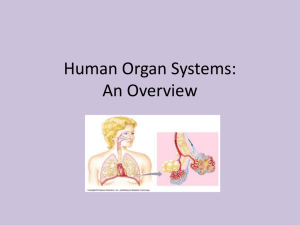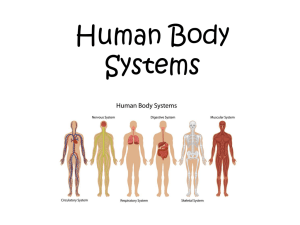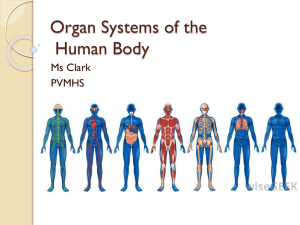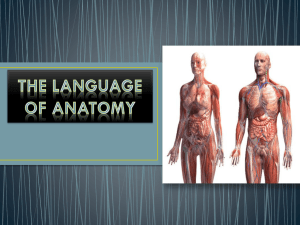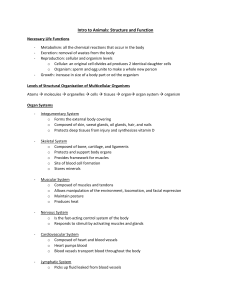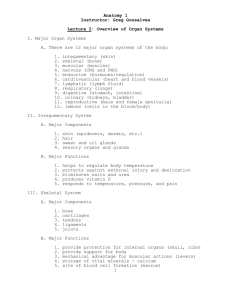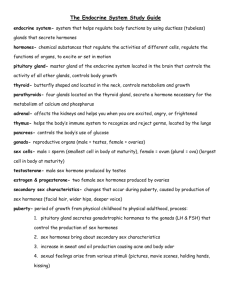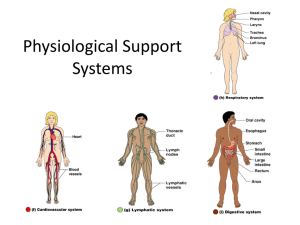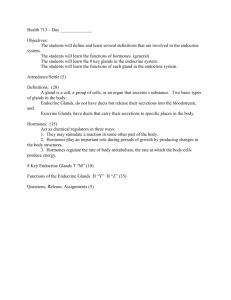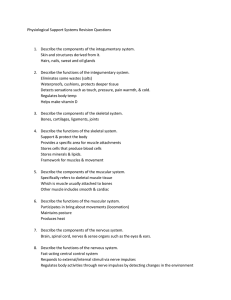Human Organ Systems
advertisement
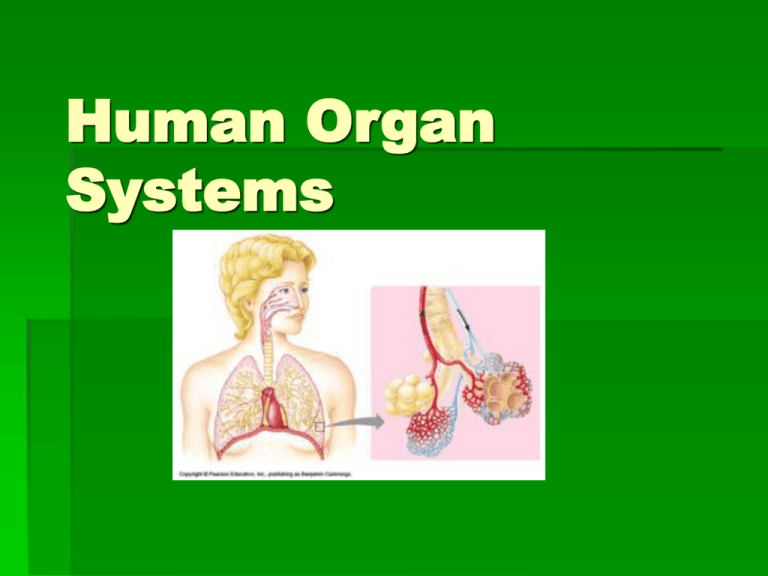
Human Organ Systems Integumentry System Body’s first line of defense • Forms the external body covering • Protects deeper tissues from injury • Synthesizes vitamin D • Site of cutaneous receptors (A cutaneous receptor is a type of sensory receptor found in the dermis or epidermis.) – Pain, pressure, etc. – sweat and oil glands Skeletal System Protects and supports body organs • Provides a framework muscles use to cause movement • Blood cells are formed within bones • Stores minerals Muscular System • Allows manipulation of the environment – Locomotion – Facial expression • Maintains posture • Produces heat Nervous System • Fast acting control system of the body • Responds to internal and external changes – Activates appropriate muscles and glands Endocrine System • Glands secrete hormones that regulate processes – Growth – Reproduction – Nutrient use (metabolism) by body cells Cardiovascular System • Blood vessels transport blood which carries – Oxygen – Carbon dioxide – Nutrients – Wastes, etc. • Heart pumps blood Lymphatic System • Picks up fluid leaked from blood vessels and returns it to blood • Disposes of debris in the lymphatic stream • Houses white blood cells (lymphocytes) involved in immunity – Immune response mounts the attack against foreign substances within the body Respiratory System Keeps blood constantly supplied with oxygen and removes carbon dioxide • Gas exchange occurs through the walls of the air sacs of the lungs Digestive System • Breaks down food into absorbable units that enter the blood for distribution to body cells • Intestines absorb water • Indigestible foods are eliminated as feces and urine Urinary System Eliminates nitrogenous wastes from the body Regulates water, electrolyte and acidbase balance of the blood Reproductive System Overall function: production of offspring Testes produce sperm and male sex hormones Ovaries produce eggs and female sex hormones Mammary glands produce milk for newborn nourishment
